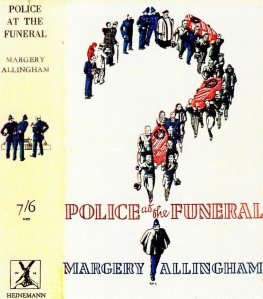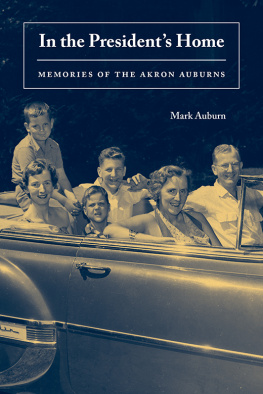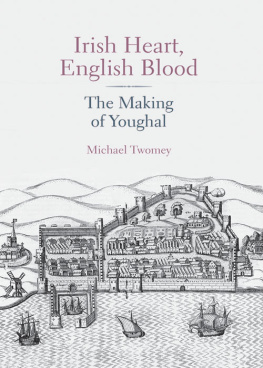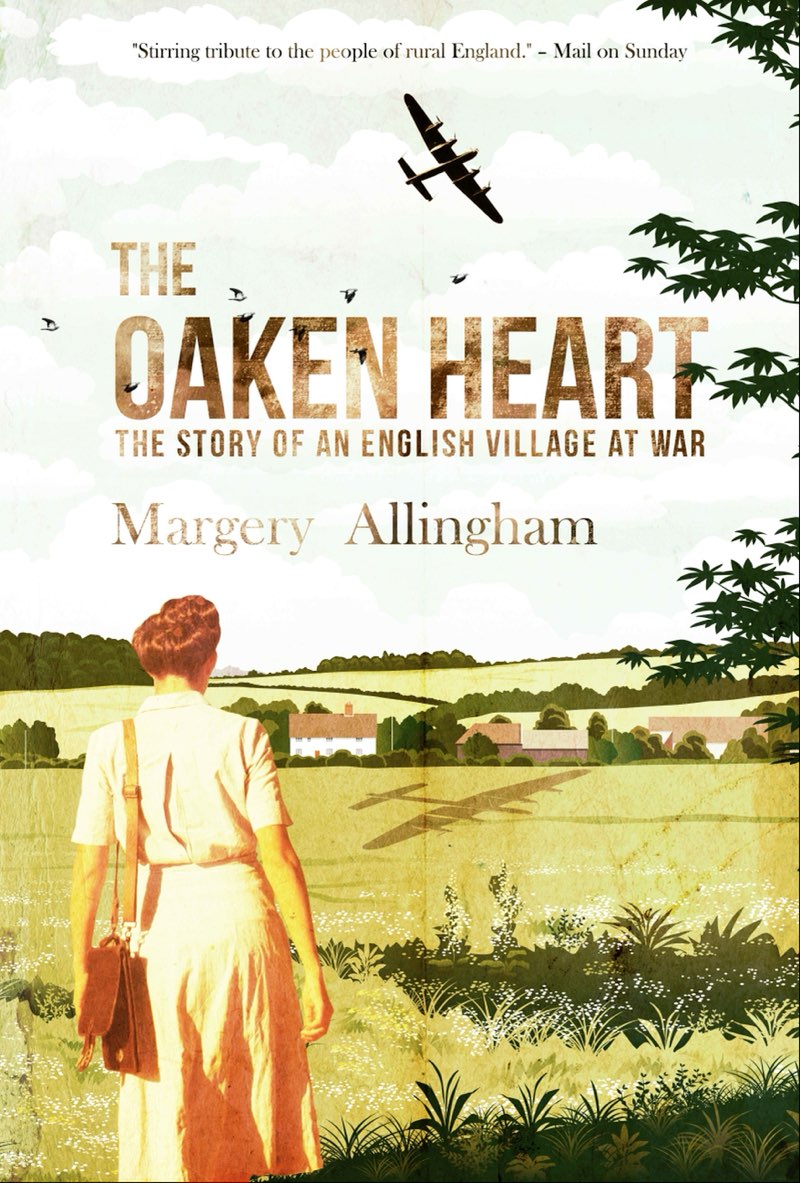The Oaken Heart
The Story of an English Village at War
Margery Allingham
About the Author
Margery Allingham was born in Ealing, London in 1904 to a family immersed in literature. Her first novel, Blackkerchief Dick, was published in 1923 when she was 19. Her first work of detective fiction was a serialized story published by the Daily Express in 1927. Entitled The White Cottage Mystery, it contained atypical themes for a woman writer of the era. Her breakthrough occurred in 1929 with the publication of The Crime at Black Dudley. This introduced Albert Campion, albeit originally as a minor character. He returned in Mystery Mile, thanks in part to pressure from her American publishers, much taken with the character. Campion proved so successful that Allingham made him the centrepiece of another 17 novels and over 20 short stories, continuing into the 1960s.
Allinghams style shows great insight into creating characters, wit, observational accuracy and a flash of eccentricity, placing her alongside Agatha Christie as one of the Queens of Crime.
Margery Allingham died in 1966.
Also By Margery Allingham
Look to the Lady
Police at the Funeral
Sweet Danger
Death of a Ghost
Flowers for the Judge
The Case of the Late Pig
Dancers in Mourning
The Fashion in Shrouds
Black Plumes
Traitors Purse
Coroners Pidgin
More Work for the Undertaker
Deadly Duo
The Tiger in the Smoke
The Beckoning Lady
Hide My Eyes
The China Governess
The Mind Readers
Cargo of Eagles
Non-Fiction and Short Stories
The Oaken Heart
The Allingham Casebook
The Oaken Heart
The Story of an English Village at War
Margery Allingham
This edition published in 2017 by Ipso Books
First published in Great Britain by Michael Joseph 1941
Agora Books is a division of Peters Fraser + Dunlop Ltd
55 New Oxford Street, London, WC1A 1BS
Copyright Margery Allingham, 1941
All rights reserved
You may not copy, distribute, transmit, reproduce or otherwise make available this publication (or any part of it) in any form, or by any means (including without limitation electronic, digital, optical, mechanical, photocopying, printing, recording or otherwise), without the prior written permission of the publisher. Any person who does any unauthorised act in relation to this publication may be liable to criminal prosecution and civil claims for damages.
AUBURN HOUSE
AUBURN
ENGLAND.
My dear Auburn,
You will want an explanation of this book and how I came to write it about you.
Last November an American whom some of you know asked me to put it down so that he and his wife and his village in America could gather exactly what life has been like down here for us ordinary country people during the war.
It was a business request and I have made an ultra-careful job of it, as you will see, because I believed that he and his friends are sufficiently (but by no means exactly) like us for it to be possible for me to convey to him much more of the actual truth than is usual on these occasions if I only approached the task without unnecessary reticence and with many explanations.
Also the war is getting very close to them over there, and they may have to go through the same sort of experience themselves should the worst (for us) happen and our island fall. It is not a private attempt at propaganda, noryet a disinterested gesture on my part. I have been employed as a professional writer by the American to tell him what he wants to know. However, I am convinced that it will be a good thing for us should a small proportion of this other great people, so like us in the main and so unlike us in the particular, acquire through this history a little clearer picture of at least one minute corner of a country in the throes of the difficulties which ours is experiencing now. If I did not think this I would not have written the book, because I am loath to publicize our personal affairs.
I am telling you all this because I want to explain why I have put in anything whatever that I thought might possibly help to make the picture clearer. I have not given away any war secrets naturally, and I have disguised the names and positions of all places, but I have not disguised your nicknames nor those in my own family. I have quoted everyone as accurately as I could and I have done my utmost best, using whatever art I possess, to put down as vividly as possible what I myself believe on soul and conscience to be true.
Some of you may not agree with me in everything, of course, but I notice that we usually seem to think much the same things about affairs, and I lived down the road as a child and learnt first things from your relations and neighbours. Therefore I have set aside self-consciousness and have gone on writing, thinking of nothing but telling the American and his wife the truth as I see it here.
Ihope that you will approve of my behaviour in this matter and will not be embarrassed by a certain baldness, a sort of lack of covering of the heart, which you will notice in this letterfor the book is really no more and no less than a letter to the American and his family.
Lying, they say, is a new modern art of the enemys but telling the truth is not easy. In fact telling the truth is the basis of all classic art, which has always been notoriously difficult. However, I have done the best I can. I have not dwelt on one thing more than another, and I have tried to put everything in.
With all my love, and God bless you and take care of you,
MARGERY CARTER
(ne Allingham)
AUBURN HOUSE,
AUBURN,
ENGLAND.
My dear T. and M.,
Here at last is the letter.
The first thing to remember about it is that it is LOCAL. This may or may not be Britain that I cannot tell you because I do not knowbut it IS Auburn, I think.
You will see from my note to Auburn how I feel about that part of it and why I have had the thundering impudence to write it.
The reference to you two not being exactly like us you will understand even better than we do! You are warm people; we are cold people who have been warm and still have warmth in places. Our heart is old and hard and true still, in spite of surface rot. Yours is seven hundred years younger, more tender and as true as you care to make it to the point of pure perfection. You will not mind my saying this, I know, because you probably feel it as much as I do.
My love and good wishes always, whatever happens.
Yours ever,
MARGERY ALLINGHAM.
Chapter One
Until July 1938
T his village of Auburn might be so complacently picturesque if it werent for the shop which Albert and his father built of public washroom brick, slap in the middle of the Square that we owe the two of them a debt of gratitude, if only for that alone.
The building brings the whole place down to earth, sobers it up and takes it out of fancy dress, so to speak.











